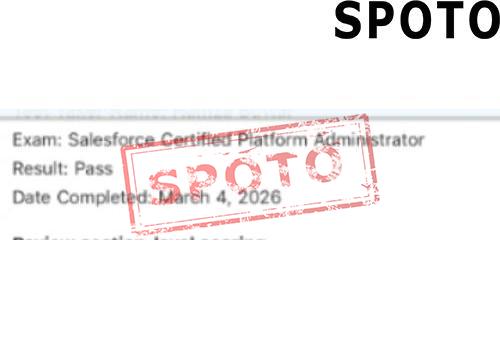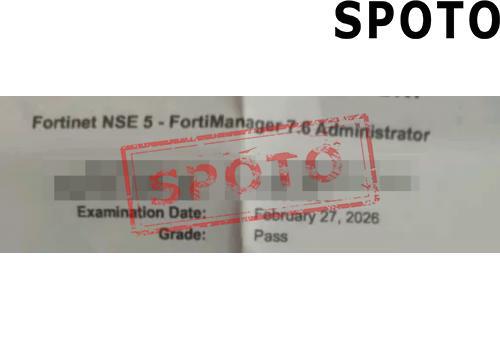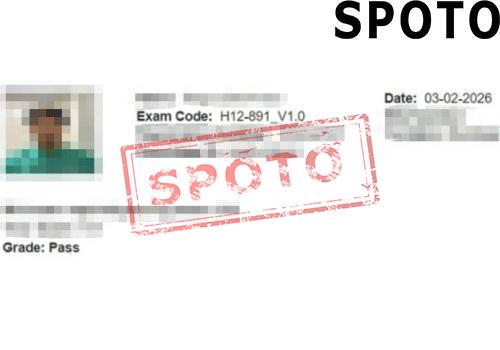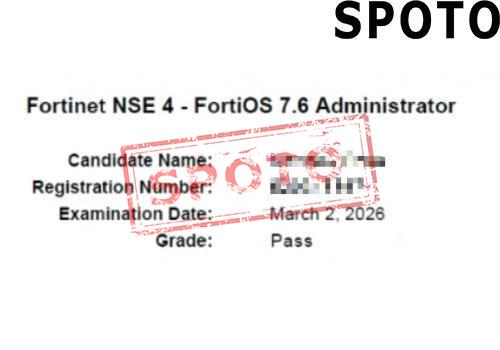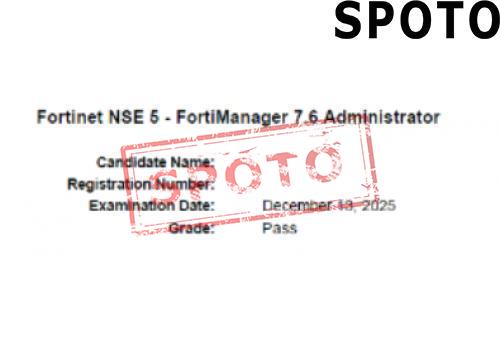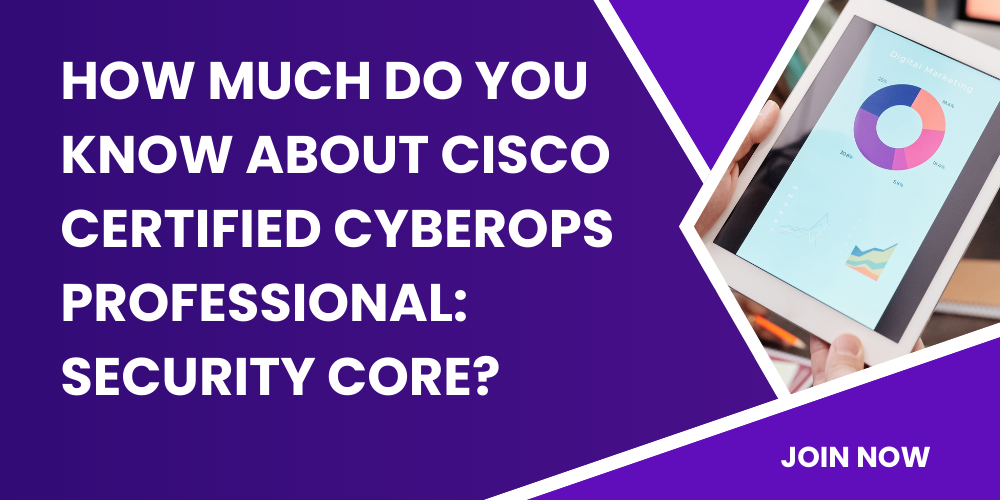
Table of Contents
- 1. Introduction to the Cisco Certified CyberOps Professional: Security Core certification
- 2. Career Value of Holding the Cisco Certified CyberOps Professional: Security Core Certification
- 3. Core Components of the Cisco Certified CyberOps Professional: Security Core Certification
- 4. What are the requirements to be a Cisco Certified CyberOps Professional: Security Core?
- 5. Comparable Certifications to Cisco Certified CyberOps Professional: Security Core certification
Cisco Certified CyberOps Professional: Security Core is an intermediate-level certification that supports personal career development in the field of cybersecurity operations.
1. Introduction to the Cisco Certified CyberOps Professional: Security Core certification
The Cisco Certified CyberOps Professional: Security Core is a professional certification offered by global networking technology giant Cisco. It validates practitioners' core knowledge and skills in cybersecurity operations and aims to cultivate professionals capable of effectively addressing security threats and ensuring network security operations in complex network environments. It represents an intermediate qualification within the Cisco cybersecurity certification system.
In today's digital age, cybersecurity threats are increasingly complex and diverse. Enterprises require professionals to monitor, analyze, and respond to various security incidents to ensure the secure and stable operation of their network infrastructure. The Cisco Certified CyberOps Professional: Security Core certification aims to cultivate "professional backbones of cybersecurity operations." Certified holders must not only understand the fundamentals of cybersecurity theory but also possess practical skills. They must be able to utilize Cisco and related technologies to perform security monitoring, incident analysis, emergency response, and security policy optimization within scenarios such as the Cybersecurity Operations Center (SOC). This certification is a crucial advancement step for entry-level cybersecurity practitioners to advance to senior cybersecurity engineer and analyst positions.
2. Career Value of Holding the Cisco Certified CyberOps Professional: Security Core Certification
As a globally renowned provider of network technology and cybersecurity solutions, Cisco's certifications are highly recognized within the industry. The Cisco Certified CyberOps Professional: Security Core certification demonstrates that holders have undergone Cisco professional training and assessment, possessing Cisco-standard cybersecurity operations skills. This makes them highly competitive in job applications, particularly for enterprise positions involving Cisco network equipment and solutions.
The Cisco Certified CyberOps Professional: Security Core certification is a mid-level certification within the Cisco cybersecurity certification system and serves as a crucial bridge from entry-level to senior-level positions. Obtaining this certification broadens career paths, increasing opportunities for advancement to positions such as senior cybersecurity analyst, security engineer, and security architect, often leading to increased salary.
In today's world, where nearly every industry is highly dependent on network infrastructure and faces cybersecurity risks, possessing professional cybersecurity operations capabilities is a critical requirement for businesses. The skills covered in this certification closely align with the actual cybersecurity operations needs of businesses. Whether in sectors with extremely high cybersecurity requirements, such as finance, telecommunications, and the internet, or in traditional industries such as manufacturing and healthcare, there is a significant demand for professionals with these specialized skills. Therefore, certificate holders have a wide range of employment opportunities.
3. Core Components of the Cisco Certified CyberOps Professional: Security Core Certification
The Cisco Certified CyberOps Professional: Security Core certification focuses on the core aspects of cybersecurity operations, emphasizing network security monitoring and analysis. You must be proficient in configuring, using, and collecting data from various network security monitoring tools. Leveraging these tools to monitor network traffic, system logs, and other information in real time, you can promptly identify anomalous activity and potential security threats.
Secondly, you must accurately categorize security incidents based on factors such as their nature, scope, and severity to prioritize responses and allocate resources. Familiarity with the complete emergency response process, including incident detection, containment, eradication, recovery, and post-incident debriefing, allows you to take swift and effective action in the face of security incidents. For example, after detecting a ransomware attack, you can promptly isolate infected systems to prevent further spread while simultaneously restoring critical data and system functionality. Mastering basic digital forensics techniques allows you to collect, preserve, and analyze relevant evidence after an incident, providing a basis for tracing the source, determining responsibility, and improving security policies.
In addition, you'll need to develop a comprehensive network security strategy based on the business needs, compliance requirements, and risk assessment results of your enterprise network, covering aspects such as access control, firewall rules, and VPN configuration. You'll also be able to continuously optimize these strategies based on network environment changes and security incident feedback, improving network security while ensuring business operations. You'll also be proficient in configuring security for Cisco and other common network devices, including setting up access control lists, enabling port security, and configuring encrypted communications. Ensuring the security of these devices and their effective role in network security is also your responsibility.
Finally, you'll need to develop a deep understanding of network security fundamentals, such as encryption, authentication mechanisms, and types of network attacks and their defenses, to provide a solid theoretical foundation for practical security operations. Familiarity with different types of network architectures and topologies, as well as understanding the connections between network components and data flows, will help you accurately assess the potential propagation paths and impact of security threats, enabling you to develop targeted protection and response strategies.
4. What are the requirements to be a Cisco Certified CyberOps Professional: Security Core?
(1) Qualification prerequisites:
Cisco recommends that candidates first obtain a relevant entry-level Cisco certification, such as CCNA or Cisco Certified CyberOps Associate. These entry-level certifications help candidates establish a solid foundation in networking and security knowledge, preparing them for the Security Core exam. It's recommended that candidates have some cybersecurity work experience or practical experience. While not mandatory, practical experience in network security monitoring, incident analysis, and other areas will help them better understand and master the knowledge and skills required for the exam.
(2) Training and examinations:
The Cisco Certified CyberOps Professional: Security Core exam typically lasts approximately 120 minutes and includes multiple-choice, drag-and-drop, and scenario-based questions, comprehensively assessing candidates' understanding and application of the knowledge.
According to Cisco's official standards, a passing score is typically required, based on official published scores. Candidates can take the exam in-person or online through professional testing platforms such as Pearson VUE. The exam fee varies slightly by region, but is approximately US$300-400.
(3) Qualification maintenance:
The Cisco Certified CyberOps Professional: Security Core certification is generally valid for three years. During this period, the certificate represents the candidate's demonstrated professional competence and can be used to demonstrate their qualifications for job applications and career advancement. To maintain the validity of the certificate, you must accumulate a certain number of credits through Cisco-approved continuing education activities during the validity period. For specific credit requirements and maintenance details, please refer to Cisco's official regulations.
5. Comparable Certifications to Cisco Certified CyberOps Professional: Security Core certification
- CompTIA Cybersecurity Analyst (CySA+)
- EC-Council Certified Network Defender (CND)
- GIAC Certified Incident Handler (GCIH)
- ISACA Certified Information Security Manager (CISM)
